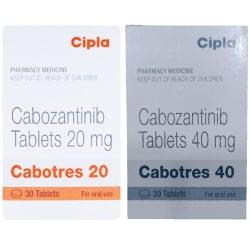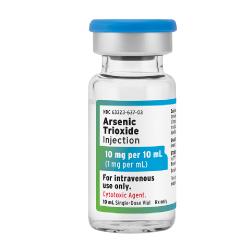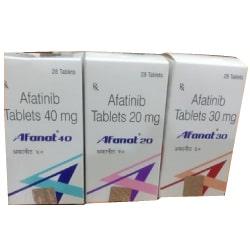Description
Cabozantinib 20mg & 40mg Tablets is a tyrosine kinase inhibitor (TKI) that is used in the treatment of several types of cancer, including renal cell carcinoma (RCC), hepatocellular carcinoma (HCC), and medullary thyroid cancer (MTC). It works by targeting specific proteins involved in tumor growth, angiogenesis (formation of new blood vessels), and metastasis (spread of cancer cells). Here are some of the key uses of cabozantinib:
- Renal Cell Carcinoma (RCC): Cabozantinib tablets are approved for the treatment of advanced RCC, the most common type of kidney cancer in adults. It is indicated for patients who have received prior anti-angiogenic therapy and have experienced disease progression. Cabozantinib helps inhibit the activity of proteins such as MET, VEGFR, and AXL, which are involved in tumor growth and angiogenesis, leading to a reduction in tumor size and progression-free survival.
- Hepatocellular Carcinoma (HCC): The medicine is also approved for the treatment of advanced HCC, the most common type of liver cancer. It is indicated for patients who have previously been treated with sorafenib, another TKI and have experienced disease progression. Cabozantinib inhibits the activity of several tyrosine kinases, including MET, VEGFR, and RET, which are implicated in HCC progression and angiogenesis.
- Medullary Thyroid Cancer (MTC): This therapeutic drug is approved for the treatment of metastatic MTC, a rare type of thyroid cancer that originates in the parafollicular cells of the thyroid gland. It is indicated for patients who have progressive, unresectable, locally advanced, or metastatic disease. Cabozantinib inhibits the activity of RET, a protein that is mutated and overactive in MTC, leading to tumor regression and improved progression-free survival.
Overall, cabozantinib represents a valuable treatment option for patients with advanced RCC, HCC, and MTC, offering the potential for improved outcomes and quality of life. Continued research and development efforts aim to expand its utility in other cancer types, further benefiting patients with limited treatment options.
Dosage and Side-effects of Cabozantinib Tablet:
The recommended dosage for RCC and HCC is 60 mg once daily without food until the patient no longer experiences benefit or unacceptable toxicity.
The recommended dosage for advanced RCC is 40 mg orally, once daily, administered in combination with nivolumab 240 mg every 2 weeks or 480 mg every 4 weeks.
The recommended dosage for patients with Medullary Thyroid Cancer (MTC) is 140 mg orally, once daily.
Do not administer Cabotres tablet with food. Administer at least 60 minutes before or at least 120 minutes after eating. Swallow Cabozantinib tablets whole. Do not crush the tablets. It is not advisable to replace or substitute Cabotres tablets with Cabotres capsules. Stop treatment with Cabozantinib at least 28 days before scheduled surgery, including dental surgery. Do not take any missed dose of Cabozantinib within 12 hours of the very next scheduled dose.
The common side effects of Cabozantinib 20 mg/40 mg tablets are:
- As a single agent: vomiting, hypertension, decreased appetite, diarrhea, fatigue, PPE, nausea, weight decrease, dysphonia, and constipation.
- In combination with nivolumab: abdominal pain, cough, hepatotoxicity, diarrhea, fatigue, stomatitis, rash, decreased appetite, hypertension, hypothyroidism, musculoskeletal pain, nausea, dysgeusia, and upper respiratory tract infection.
Warning and Precautions of Cabozantinib Tablet:
- Gastrointestinal (GI) perforations and Fistulas, including fatal cases, may occur in those treated with cabozantinib tablets. Evaluate patients for signs and symptoms of fistulas and perforations, including sepsis and abscesses. Stop treatment in those who experience a fistula that cannot be precisely controlled or a GI perforation.
- Critical and fatal hemorrhages may occur with cabozantinib 20 mg tablets/40 mg tablets. The occurrence of Grade 3-5 hemorrhagic events may occur in those treated with this medication. Discontinue therapy for Grade 3/4 hemorrhage. Avoid administering it to those who have a known history of hemorrhage, including hemoptysis, hematemesis, or melena.
- Cabotres may increase the risk of thrombotic events. Fatal thrombotic events may occur in patients treated with Cabozantinib 20 mg, or 40 mg Tablets. Stop this treatment in those who develop a critical arterial or acute myocardial infarction or venous thromboembolic events that require medical intervention.
- Therapy with Cabotres tablet can be responsible for causing hypertension, including hypertensive crisis. Avoid initiating treatment in those with uncontrolled hypertension. Assess blood pressure on a regular basis throughout the therapy.
- Diarrhea may occur in patients treated with Cabozantinib 40 mg tablets. Withhold therapy until improvement to Grade-1 and resume therapy at a reduced dose for intolerable Grade-2 diarrhea, Grade-3 diarrhea that cannot be managed with standard anti-diarrhea treatments, or Grade-4 diarrhea.
- Proteinuria has been noted in those with Cabozantinib treatment. Monitor urine protein on a regular basis throughout Cabotres tablet treatment. Discontinue this medication in patients who develop nephrotic syndrome.






